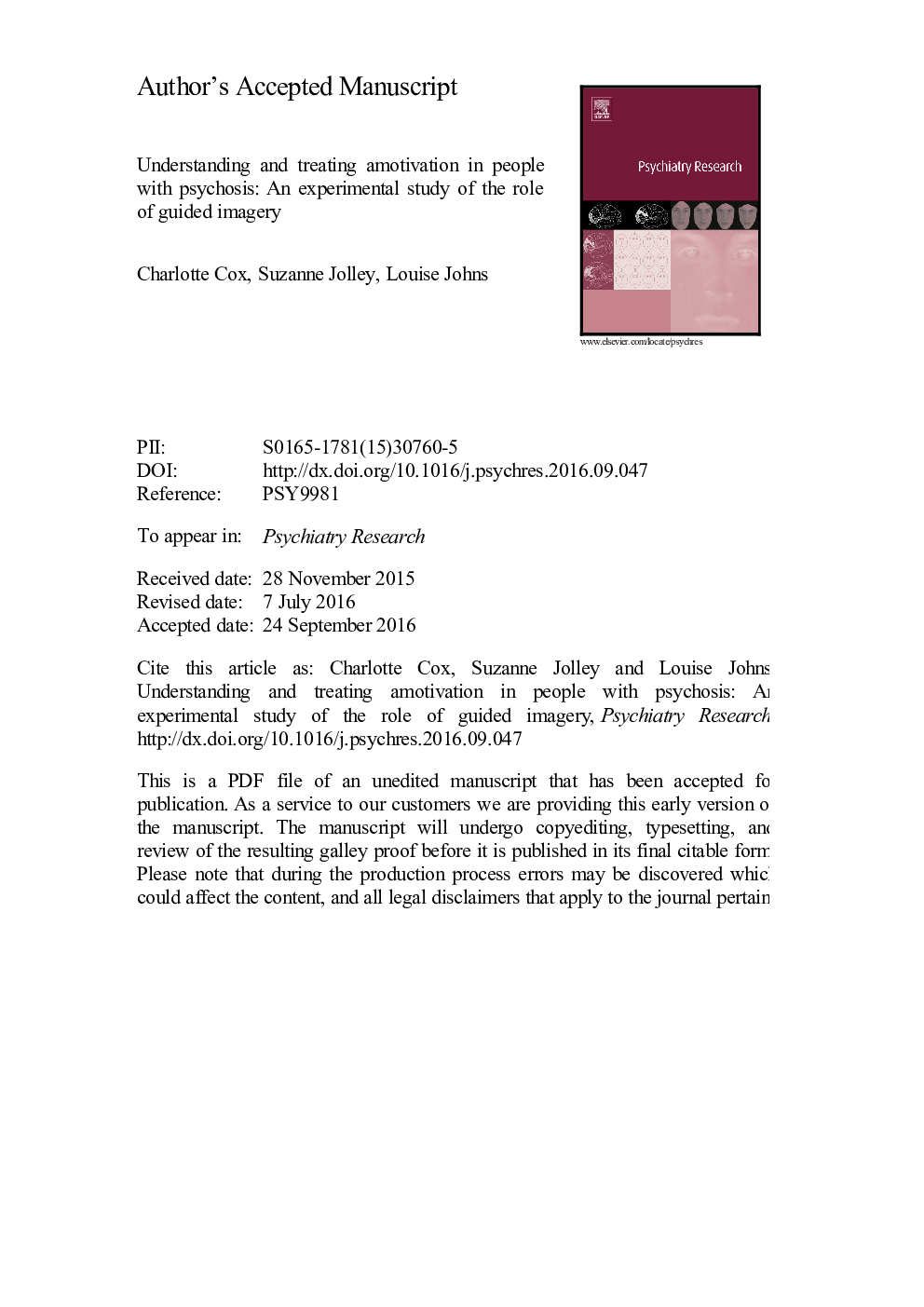| Article ID | Journal | Published Year | Pages | File Type |
|---|---|---|---|---|
| 4933810 | Psychiatry Research | 2016 | 19 Pages |
Abstract
Psychological models propose that the amotivational negative symptoms (ANS) of psychosis are influenced by expectations of future events; both anticipatory success (believing one can achieve something, AS) and anticipatory pleasure (mentally pre-creating potential future experiences of enjoyment, AP). Mental imagery manipulations have been shown to change expectations across a range of settings, and may therefore enhance psychological interventions for ANS in people with psychosis. We set out to investigate the impact of a guided imagery manipulation on AS and AP in this group. Forty-two participants with psychosis and ANS completed measures of ANS severity, before random allocation to either a positive or neutral imagery manipulation. AS and AP towards a dart-throwing task were measured before and after the manipulation. Greater ANS severity was associated with lower levels of AS, but not of AP, irrespective of task performance. AS, but not AP, improved during both positive and neutral imagery manipulations, with no effect of imagery type. Anticipatory success is a candidate psychological factor influencing the severity of ANS in psychosis that may be changed by guided imagery manipulation. Imagery interventions are feasible and acceptable for this group: further investigation is needed of their mechanism of action and potential to improve functioning.
Related Topics
Life Sciences
Neuroscience
Biological Psychiatry
Authors
Charlotte Cox, Suzanne Jolley, Louise Johns,
